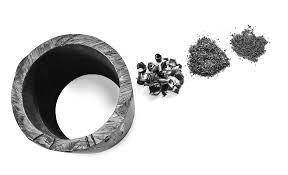Dec . 13, 2024 06:04 Back to list
ppr pipe vs pvc pipe factories
PPR Pipe vs. PVC Pipe A Comparative Overview for Factories
When it comes to the selection of piping materials for industrial applications, factories often face the dilemma of choosing between PPR (Polypropylene Random Copolymer) pipes and PVC (Polyvinyl Chloride) pipes. Both types of pipes have their unique characteristics and advantages, making them suitable for different applications. In this article, we will delve into the details of PPR and PVC pipes, comparing their properties, advantages, and best applications for factory settings.
Chemical Composition and Characteristics
PPR pipes are made from polypropylene, a versatile thermoplastic polymer. The random copolymer designation indicates that the polymer has a random arrangement of polymer chains, which enhances flexibility and performance at high temperatures. Conversely, PVC pipes are made from polyvinyl chloride, a rigid plastic that is durable and resistant to a variety of chemicals and environmental factors.
In terms of physical properties, PPR pipes are known for their high-temperature resistance and can withstand temperatures of up to 95°C (203°F). This makes them ideal for hot water applications, such as heating systems. PVC pipes, while also durable, have a heat tolerance of around 60°C (140°F), making them less suitable for applications involving hot fluids.
Benefits of PPR Pipes
1. Temperature Resistance As mentioned, PPR pipes can handle high-temperature fluids without deforming or losing integrity, making them a preferred choice for hot water systems in factories.
2. Longevity PPR pipes have a longer lifespan compared to PVC pipes, often lasting more than 50 years under normal usage. This longevity translates into reduced maintenance and replacement costs for factories.
3. Health and Safety PPR is a non-toxic material and does not release harmful substances into water, making it suitable for drinking water supply systems – an important consideration for health-conscious factories.
4. Flexibility PPR pipes can be welded together, allowing for fewer joints and reduced risk of leaks. Factory installations can be more efficient with less material waste.
ppr pipe vs pvc pipe factories

Advantages of PVC Pipes
1. Cost-Effectiveness PVC pipes are generally less expensive than PPR pipes, making them an attractive option for factories on a tight budget. The lower initial investment can be significant, especially in large-scale installations.
2. Chemical Resistance PVC pipes exhibit excellent resistance to a wide variety of chemicals, which makes them suitable for factory environments dealing with corrosive substances.
3. Ease of Installation PVC pipes are lightweight and easy to handle, which simplifies transportation and installation processes. This can lead to lower labor costs during installation.
4. Rigid Structure The rigidity of PVC pipes provides them with structural integrity, making them ideal for specific applications where pipe support is minimal.
Best Applications for Factories
Choosing between PPR and PVC pipes ultimately depends on the specific needs of the factory. PPR pipes are better suited for hot water systems, potable water supply, and heating applications due to their high-temperature resistance and health safety features. On the other hand, PVC pipes are ideal for drainage systems, chemical transportation, and general plumbing duties where cost and chemical resistance are paramount.
Conclusion
In conclusion, both PPR and PVC pipes have their unique strengths and weaknesses. Factories must consider factors such as application temperature, chemical exposure, maintenance budgets, and overall project lifecycle when making a decision. By understanding the key differences between these two piping materials, factories can make informed choices that align with their operational needs and financial goals. Ultimately, whether opting for the durability of PPR or the affordability of PVC, a well-considered decision can enhance productivity and efficiency in industrial processes.
-
HDPE & PPR Pipe Elbows Durable, Corrosion-Resistant Solutions
NewsJun.01,2025
-
HDPE Tee Fittings 48-Inch HDPE Pipe Solutions & Cost Optimization
NewsJun.01,2025
-
Premium PVC Perforated Pipes for Efficient Drainage Trusted Factories
NewsMay.31,2025
-
Premium Perforated PVC Pipes for Drainage Solutions Trusted Factories & Manufacturers
NewsMay.31,2025
-
HDPE Electrofusion Fittings Durable, Leak-Proof Conduit Solutions
NewsMay.31,2025
-
HDPE Compression Fittings Leak-Proof, Corrosion-Resistant Solutions
NewsMay.31,2025

